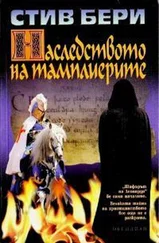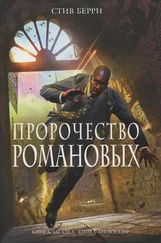“Tomorrow is quite a risk. To my memory, no one has ever been so bold in a chancellor’s race. There could be a backlash.”
And she meant it.
The car turned onto busy Maximilianstrasse and melded into brisk night traffic.
“Pohl’s message is taking hold. Its resonance is frightening. Silence at this point could be fatal,” her aide said.
“As could what I’m planning to say tomorrow.”
She wanted to hear from Malone and Vitt and know what was happening in Chile. That could be her answer. Yet nothing had come, so far, from across the Atlantic.
There really was no choice.
Not to act now might be the worst mistake of all.
Fifteen minutes later she was climbing a set of oak stairs to the second floor of the Karlshof, an elegant two-hundred-room hotel with spectacular views of the nearby Karlsplatz. Her suite was a three-room affair, for which she was grateful since her husband, Kurt, had accompanied her from their nearby lakeside schlöss.
“Guten abend,” he said to her.
She turned from closing the hotel room door. Kurt was ensconced in one of the suite’s Regency chairs, reading the Munich newspaper.
“I left after dinner,” he said. “I assumed you were aware. That crowd was not my type.”
She’d noticed his exit and was glad for it.
He tended to talk far too much when he drank.
He folded the newspaper and gazed over at her. “Did you notice the waiter who served us dinner? The man repeatedly tried to speak with me. For what, I do not know.” He shook his head. “Disgusting. This country is overrun with brownies. They are destroying the fabric of our society.”
She, too, had noticed the waiter and spoke to him briefly. He was a citizen, born here to immigrant parents who’d arrived from Turkey four decades ago in one of the first waves of guest workers—those invited to Germany to help alleviate a then-serious employment problem. His family remained after the visa time had expired and now considered Germany their home. “I certainly hope you continue to confine those remarks, and your slurs, to you and me.”
“Oh, not to worry. I would do nothing to jeopardize your position or campaign. I am the husband of the chancellor and I keep my opinions to myself.”
She wondered how eight million Turks could possibly dilute seventy million Germans, but unfortunately her husband’s xenophobia was shared by an alarming number of people. And a declining birth rate among Germans only contributed to that fear. While Turks, Kurds, and a multitude of other émigrés encouraged large families, Germans seemed the opposite. One of the new right’s more recent rallying cries proclaimed that within a few decades Germans would become a minority within their own country.
“Why is it necessary for you to hate?” It was a question she wanted to pose to the nation as a whole.
He tossed his newspaper on a side table. “I don’t. Not at all. I simply question why our country has to be the dumping ground for all of Europe.”
“Perhaps because we attempted twice in fifty years to dominate Europe. Not to mention the six million Jews and millions of others we slaughtered in two wars. I would think there is a need for reparation.”
Which was why she’d welcomed over a million asylum seekers into the country during her time in office. People from Syria, Afghanistan, and Africa fleeing violence and oppression. But that open-door policy had coalesced her enemies into a cohesive opposition, one Pohl had exploited.
Kurt threw her one of his condescending smiles. “Marie, all of those atrocities are the sins of our fathers and grandfathers, not ours. You, I, and 99 percent of every German alive today have never harmed a soul. Yet we continue to pay the price for their mistakes.”
She sat in one of the chairs, tired, but still wound up from the forum.
“You truly frighten me, Kurt. You and all of the others who tear people down to make yourselves feel strong. Why is that necessary? It seems a tragic fault. You cannot be proud of yourselves unless it is at another’s expense.”
“I am seventy-six years old and proud to be German. I would not want to hurt or harm a soul. Not ever. I simply question the need for continued, indiscriminate immigration into this country.”
She reached for the newspaper. One of her advisers had briefed her earlier on the day’s events.
“Did you read the story today about what happened in Thuringia,” she said. “Forty skinheads, kids, sixteen to twenty-four years old, went on a rampage. They assaulted a Turkish merchant, stole his money, then physically attacked three Spanish tourists. They ended up at Buchenwald and desecrated the concentration camp with vandalism for two hours before police finally decided to arrest them. All were subsequently released and the charges dropped. And you see no problem there?”
He shook his head. “As I said, the people are tired of atoning for the sins of another generation. They see foreigners as a constant reminder of that. Can’t you see? Continuous apologies only fuel the fires of discontent. What is reported there in the newspaper is a prime example of what I am saying. Acts of violence like that are merely reflections of a collective frustration.”
She stared at her husband and wondered about him. Only in the last couple of decades had his true feelings manifested themselves. But his radicalism disgusted her. He was akin to a group of twenty-year-olds who, in the 1920s, conceived National Socialism and eventually convinced a nation to follow their lead.
That was her greatest fear.
Germans followed far too easily. Only a few dared to lead while all of the others, like ants in a mound, blindly fell into line. One example of that collective fault had been hammered home earlier when her pollster told her that, even though the communists had utterly destroyed eastern Germany, a surprising bloc of easterners favored its return. Fewer choices was the main reason they offered.
Which exposed a fundamental flaw in her society.
Where Americans or the British never fully trusted their government and used skepticism to keep officials at bay, Germans seemed to embrace their leaders with an unfettered devotion.
The man sitting across from her was a prime example.
His father had been an ardent Nazi, an industrialist who not only financed Hitler, but became a willing partner. The only thing that saved him from prison after the war was that Eisenhuth-Industrie had been deemed vital to the rebuilding of the new West Germany. So the family was spared a forfeiture of their assets in return for cooperation, but her father-in-law died twenty-five years ago still fervently believing Hitler had been right.
“Are you still going tomorrow?” he asked her.
She heard the resignation in his voice.
He would never understand so she said nothing.
“I take it from your silence that you are. God help you, Marie. You are making a huge mistake.”
“That’s your opinion. Keep it, and all of the others, to yourself.”
And she meant it.
She stood and headed to her bedroom. His room was on the other side of the suite. They’d not shared a bed in a long time.
“I do keep my opinions to myself,” he declared. “But that is the benefit of this great democracy you champion. I may possess whatever belief I desire. You are entitled to yours and I to mine.”
It was useless, as always. They’d engaged in similar discussions before, each time with the same results. Him being condescending and her walking off. The man whom she’d married four decades ago had evolved into a total stranger. She’d always thought him different from his family, a progressive German, the son of a Nazi but not an inheritor of those warped ideals. Yet he was exactly like his father. Luckily, Kurt was harmless. He seemed content to oversee the family businesses, read his newspapers, and debate with her. As long as that was the extent of his political efforts, she was fine. She recalled what her aide said in the car.
Читать дальше












